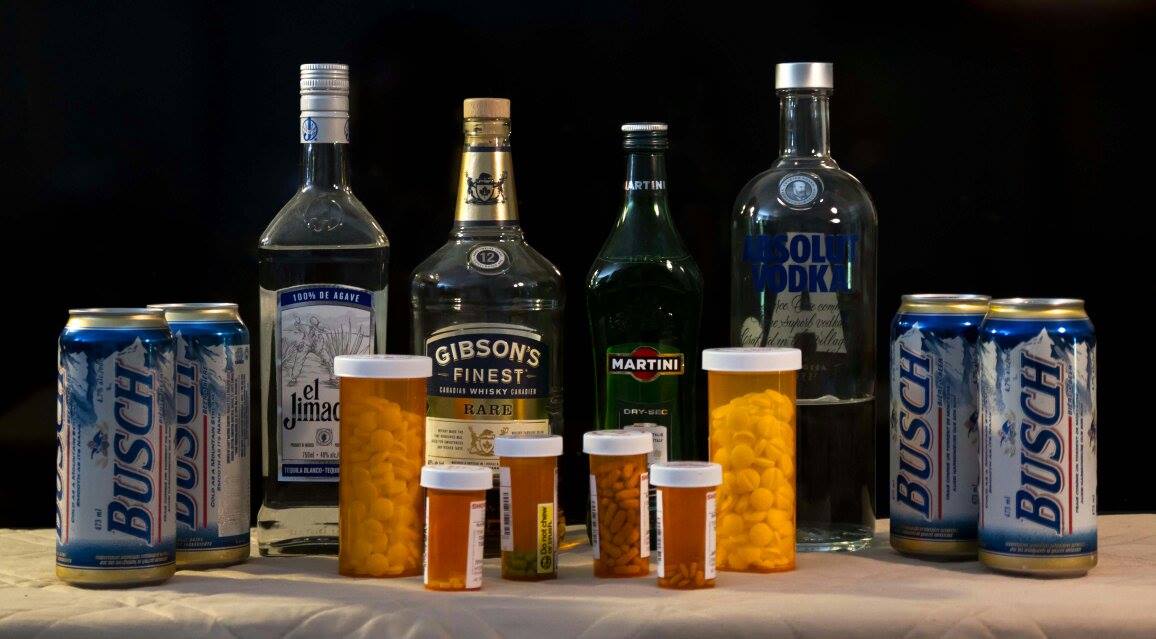Naprelan and Alcohol Interaction

Naprelan and Alcohol
Naprelan generic name naproxen belong to a family of drugs knonn as nonsteroidal anti-inflammatory drugs (NSAID) which are used for treating rheumatoid arthritis, osteoarthritis and ankylosing spondylitis and is used to treat tendonitis, bursitis, gout, menstrual cramps or mild to moderate pain.
The drug works by blocking certain substances in the body that are linked to inflammation and treat the symptoms of pain and inflammation. Note it does not treat the disease that causes those symptoms.
It is suggested that patients do not consume alcohol even moderate drinking while using this drug as the side effects may be greatly affected.
At this time the medical community defines moderate consumption of alcohol as no more than two drinks per day and no more than 14 drinks per week. If anything more than that it is considered an unhealthy dependency on alcohol that may have adverse social, family and health consequences.
If a person drinks only once or twice a week but drinks on the same days each week and more than two drinks this is considered as an alcohol dependency.
If a person binge drinks at any time during the week this is also considered as alcoholism.
Some consider alcoholism as a disease while others consider it an addiction which is the result of personal choice and character fault. This school of thought blames the alcoholism on life style choices.
Personally I consider alcoholism a genetic tendency as I have seen families of alcoholics even when they live far apart. These unfortunate people are probably dependent on alcohol from the first drink.
When alcohol interacts with prescription over the counter drugs it usually results in negative health effects most especially liver damage as the main organ affected.
Before using Naprelan advise your doctor if you are allergic to any other drug or substance, if you are using dietary or herbal supplements, are pregnant, plan to be or are breastfeeding, have a history of kidney or liver disease, diabetes, stomach or bowel problems, swelling or fluid build up, asthma, growths in the nose, mouth inflammation, high blood pressure, blood disorders, bleeding or clotting problems, heart problems, blood vessel disease, poor health, dehydration, low fluid volume, low blood sodium levels, on a low salt diet, drink alcohol or have a history of alcohol abuse.b
Side Effects
Less serious side effects are constipation, drowsy, diarrhea, dizzy, gas, headache, heartburn, nausea, stomach upset or stuffy nose. If these occur call your physician for advice.
Serious side effects are severe allergic reactions such as hives difficult breathing, tight chest, swelling of the mouth, face, lips or tongue, black bloody stools, changes in urination, chest pain, confusion, dark urine, depression, fainting, fast irregular heartbeat, fever, chills, sore throat, loss of appetite, mental or mood changes, numb arm or leg, one side weakness, pale stools, red swollen blistered peeling skin, ringing in ears, seizures, severe headache or dizziness, severe persistent stomach pain or nausea, severe vomiting, short of breath, weight gain, swelling of hands, legs or feet, bruising or bleeding, joint or muscle pain, tired or weak, vision or speech problems, granular vomit or jaundice. If these occur get emergency medical help.
This site serves as an information source only and does not dispense medical advice or any other kind of advice. If you are seeking medical advice you are advised to consult your own physician.
Naprelan and Alcohol Naprelan and Alcohol
Return from Naprelan and Alcohol to home page
Hard copy and E book for sale. What's Killing You and What You Can Do About It. Click here.
Hard copy and E book for sale. Introduction to Building Mechanical Systems. Click here.